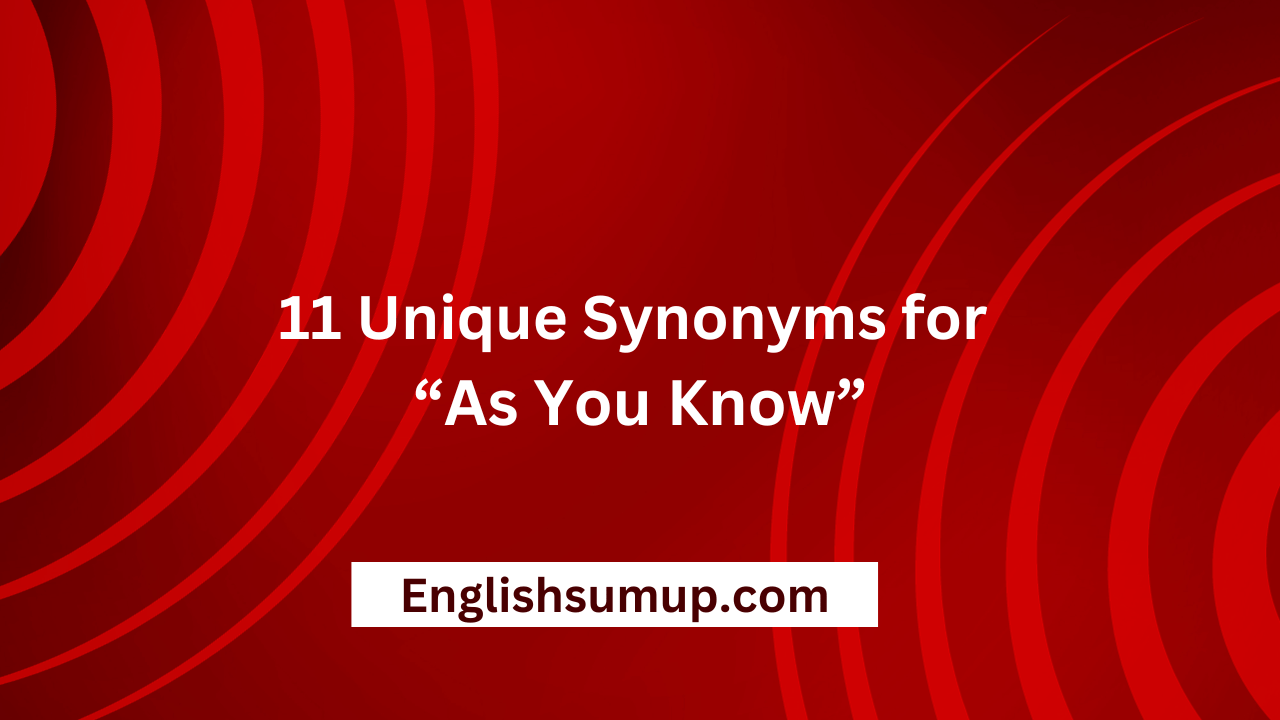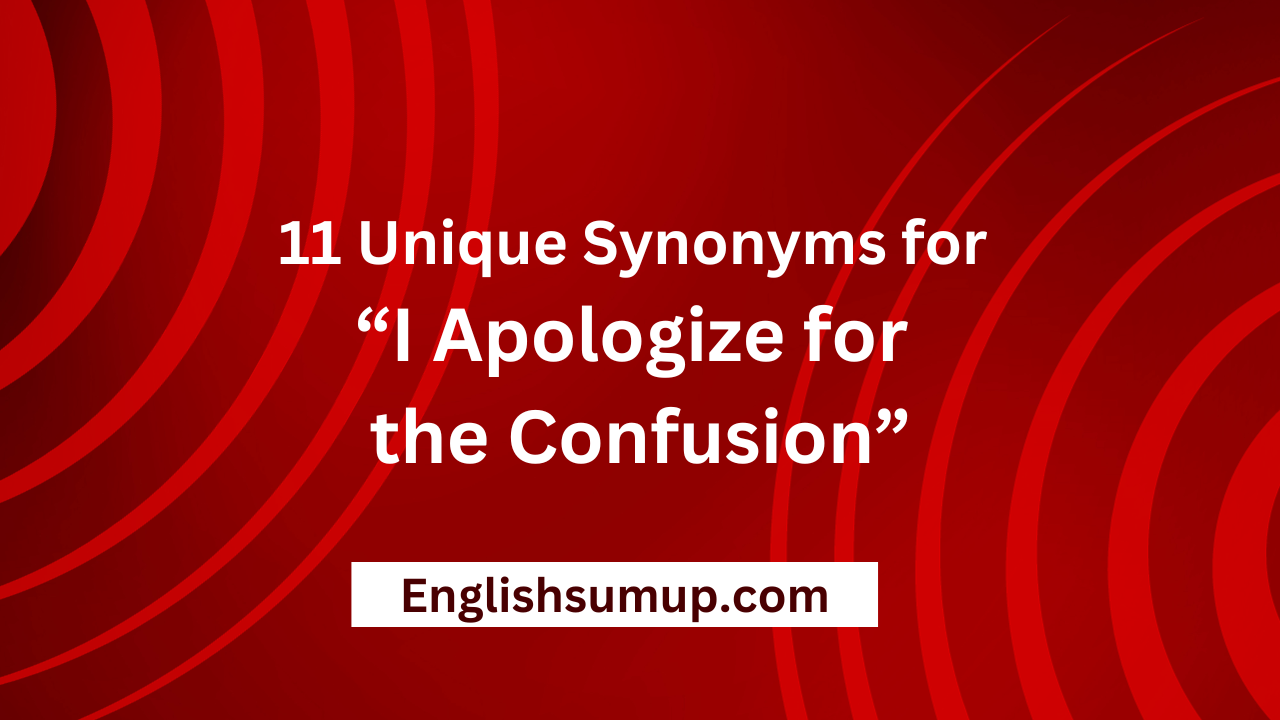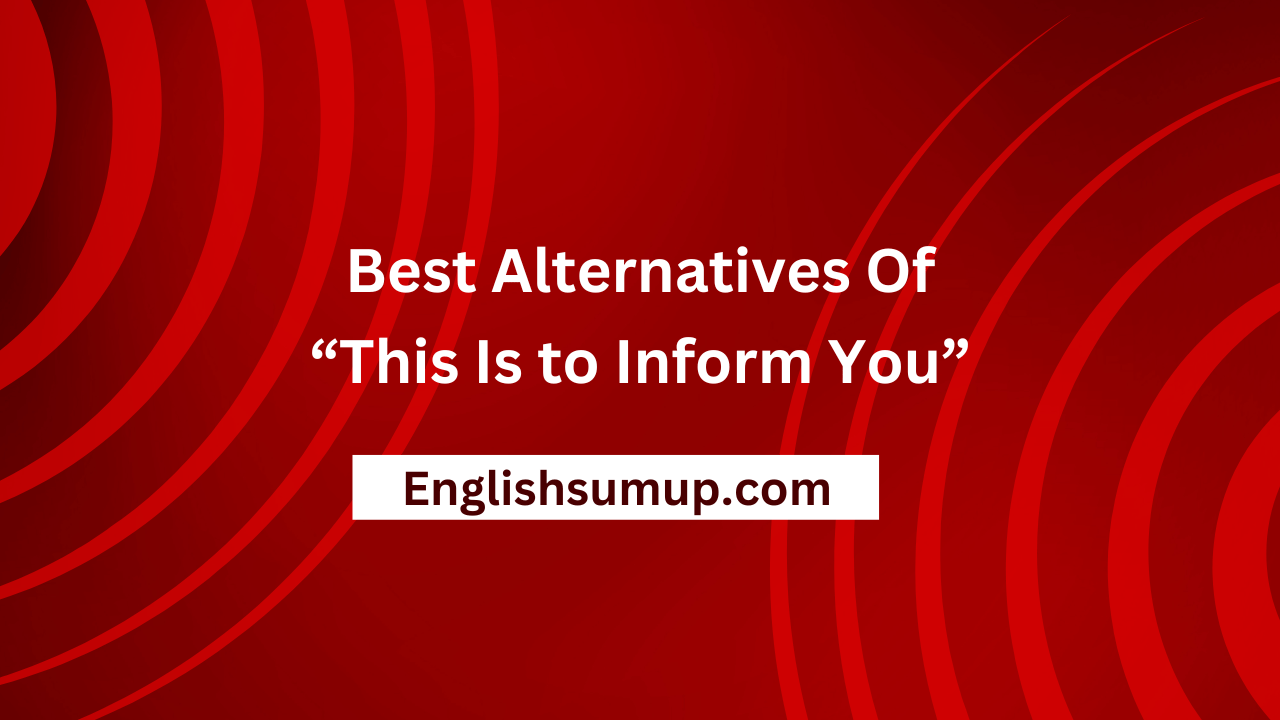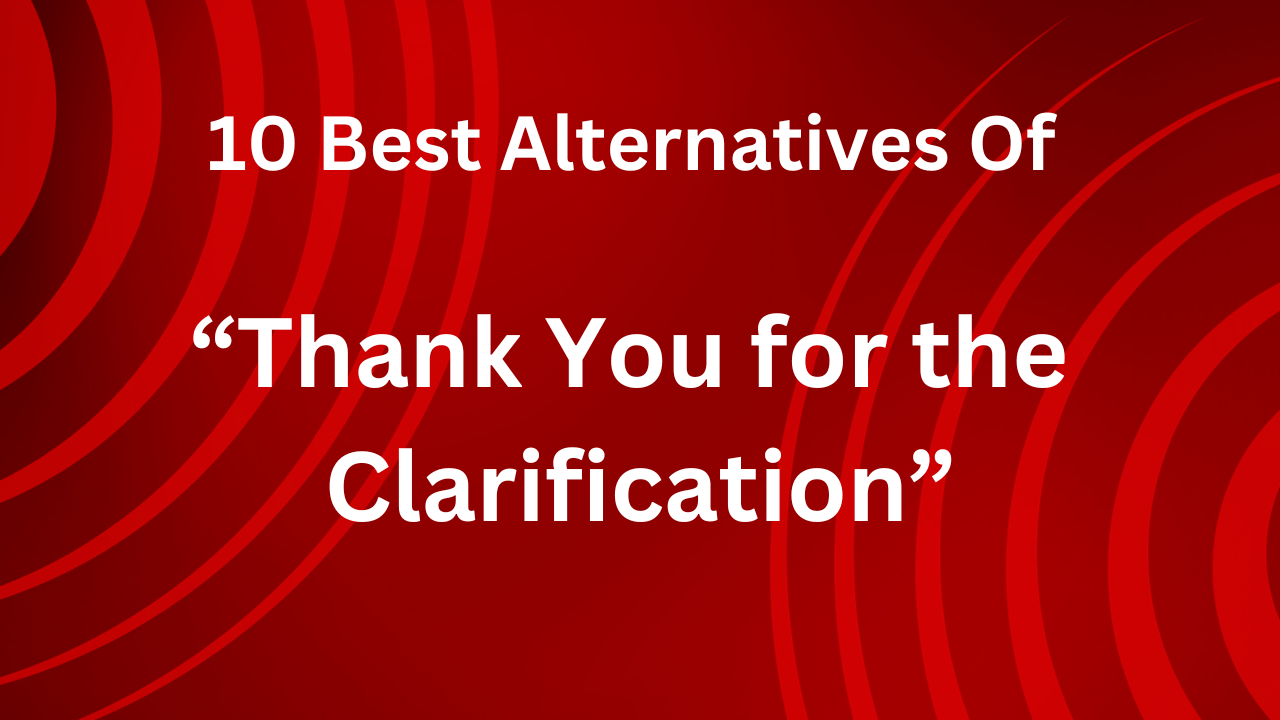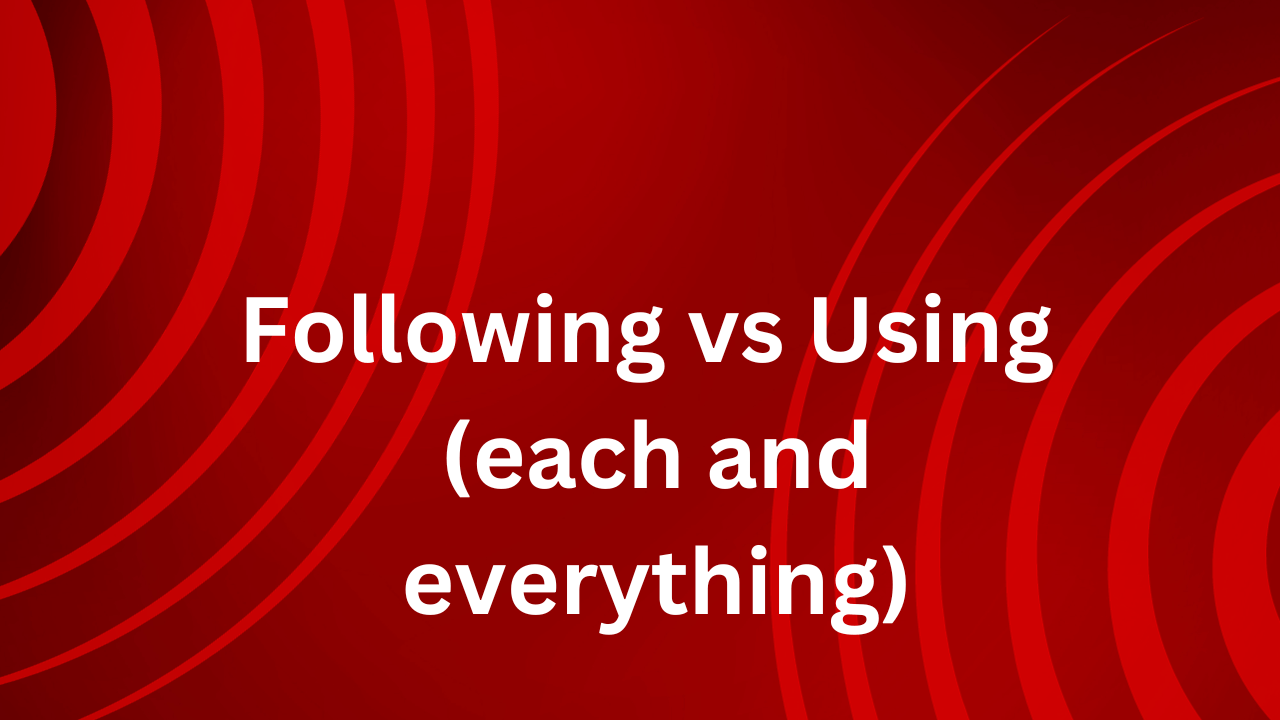In the course of conveying information like “as you know”, it’s possible that the recipient is already acquainted with the details. Occasionally, acknowledging their existing knowledge becomes essential, albeit with a touch of courtesy.
While the phrase “as you know” is commonly employed for this purpose, one might question its level of formality, especially in the context of email communication.
This piece compiles a range of alternatives, offering you polite ways to express familiarity, and suggesting that “as you know” may not always be the optimal choice in crafting your emails.
Is It Polite to Say “As You Know”?
Determining the appropriateness of the phrase “As you know” in professional communication involves a nuanced evaluation. While this expression is generally considered polite and effective in formal emails, acknowledging the recipient’s existing awareness, it is crucial to be aware of its potential drawbacks.
Employing “As you know” in a sentence can be refined for utmost courtesy.
For instance:
“As you know, recent cutbacks have been implemented, and I seek your assistance in deciding the areas where we need to make adjustments.”
Pros:
Demonstrates Appreciation: It conveys gratitude for the recipient’s existing knowledge.
Politeness: Initiates the email in a courteous manner.
Cons:
Presumptuous Nature: There is a risk of assuming the recipient’s knowledge, which may not align with reality.
Generic Impersonality: The phrase can come across as standard and lacking a personal touch.
Read this post also: 11 Unique Ways to Say “I Apologize for the Confusion”
“While ‘As you know’ holds its merit in formal emails, diversity in expression is beneficial. It is advisable to incorporate alternative phrases to maintain engagement and variety in your correspondence.”
What to Say Instead of “As You Know”
- In your knowledge domain
- Given your familiarity
- Considering your existing awareness
- In light of your cognizance
- Presuming your grasp on this
- Acknowledging your prior understanding
- In view of your preexisting knowledge
- With your background knowledge
- Taking into account your informed perspective
- Given your existing insight
- Noting your already-established understanding
1. In your knowledge domain
This phrase emphasizes the recipient’s expertise or familiarity within a specific area or subject matter. It conveys a sense of respect for their domain of knowledge. Say this instead of As You Know.
Sub: Seeking Your Expertise
Dear John,
I trust this email finds you well. In your knowledge domain of Any topic, your insights have always been invaluable. Today, I am reaching out to draw upon your expertise regarding [topic]. Your discerning perspective would greatly contribute to our ongoing efforts.
Looking forward to your guidance.
Best regards,
Devon
2. Given your familiarity
This expression acknowledges the recipient’s existing acquaintance with the subject matter, highlighting their comfort and ease in navigating the discussed topic. Say this instead of As You Know.
Sub: Leveraging Your Familiarity
Dear John,
Given your familiarity with Any topic, I am reaching out for your input on [specific aspect]. Your past experiences have proven to be instrumental, and I believe your insights would significantly enhance our current undertaking.
Thank you for considering my request.
Warm regards,
Devon
3. Considering your existing awareness
This phrase reflects a thoughtful acknowledgment of the recipient’s current level of awareness, demonstrating a conscious recognition of their knowledge on the matter. Say this instead of As You Know.
Sub: Seeking Input with Your Awareness
Dear John,
Considering your existing awareness of Any topic, I am seeking your valuable input on [specific question]. Your well-informed perspective is crucial to the success of our upcoming project, and I appreciate your time and expertise in advance.
Best regards,
Devon
4. In light of your cognizance
This expression imparts a sense of depth to the recipient’s understanding, portraying their awareness as a guiding factor in the conversation. Say this instead of As You Know.
Sub: Discussion in Light of Your Cognizance
Dear John,
I hope this message finds you well. I am reaching out to discuss any topic in light of your cognizance in the field. Your profound understanding has always added a valuable dimension to our conversations, and I am eager to incorporate your insights into our current deliberations.
Looking forward to your input.
Warm regards,
Devon
5. Presuming your grasp on this
This phrase assumes the recipient’s understanding, indicating a level of confidence in their knowledge and expertise. Say this instead of As You Know.
Sub: Seeking Confirmation on any topic
Dear John,
Presuming your grasp on Any topic, I am seeking your confirmation and insights on [specific aspect]. Your expertise in this matter is highly regarded, and your input would be instrumental in our decision-making process.
Appreciate your time and consideration.
Best regards,
Devon
6. Acknowledging your prior understanding
This expression overtly acknowledges the recipient’s previous comprehension of the subject, emphasizing a shared history of knowledge. Say this instead of As You Know.
Sub: Building Upon Your Prior Understanding
Dear John,
Acknowledging your prior understanding of Any topic, I am reaching out to build upon the foundation we’ve established. Your history of insight into [specific aspect] makes your input invaluable, and I look forward to further collaboration.
Thank you for your continued support.
Sincerely,
Devon
7. In view of your preexisting knowledge
This phrase suggests that the conversation is shaped by the recipient’s preexisting knowledge, placing their expertise at the forefront of the discussion. Say this instead of As You Know.
Sub: Tailoring Our Discussion to Your Preexisting Knowledge
Dear John,
I trust you are well. Our current discourse, in view of your preexisting knowledge about any topic, is crucial. I am reaching out to incorporate your insights into our ongoing dialogue, as your expertise greatly influences our decision-making process.
Looking forward to your contributions.
Warm regards,
Devon
8. With your background knowledge
This expression emphasizes the significance of the recipient’s background knowledge, showcasing their unique qualifications in the context of the conversation. Say this instead of As You Know.
Sub: Leveraging Your Background Knowledge
Dear John,
With your background knowledge in Any topic, I am reaching out to tap into your expertise on [specific issue]. Your unique qualifications make your perspective invaluable, and I am eager to hear your thoughts on how we can proceed.
Thank you for your time.
Best regards,
Devon
9. Taking into account your informed perspective
This phrase indicates a deliberate consideration of the recipient’s well-informed perspective, highlighting the importance of their insights. Say this instead of As You Know.
Sub: Seeking Your Informed Perspective
Dear John,
Taking into account your informed perspective on any topic, I am reaching out for your valuable input regarding specific aspect. Your insights have consistently proven to be enlightening, and I believe your perspective will greatly benefit our current discussions.
Appreciate your time and expertise.
Sincerely,
Devon
10. Given your existing insight
This expression underscores the recipient’s current insight, signifying an awareness of their ongoing understanding of the subject. Say this instead of As You Know.
Sub: Building Upon Your Existing Insight
Dear John,
Given your existing insight into any topic, I am seeking your input on [specific issue]. Your continuous understanding of this matter is highly valued, and I believe your contribution will significantly enhance our collective efforts.
Thank you for your collaboration.
Warm regards,
Devon
11. Noting your already-established understanding
This phrase highlights the recipient’s already-established understanding, emphasizing a recognition of their well-grounded knowledge. Say this instead of As You Know.
Sub: Acknowledging Your Established Understanding
Dear John,
Noting your already-established understanding of Any topic, I am reaching out to acknowledge and leverage your insights on [specific aspect]. Your well-grounded knowledge is pivotal, and I am eager to incorporate your expertise into our ongoing discussions.
Appreciate your continued support.
Sincerely,
Devon




